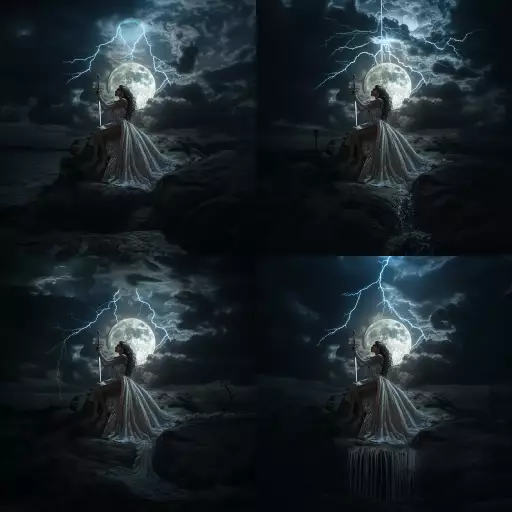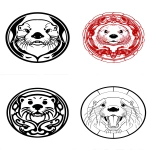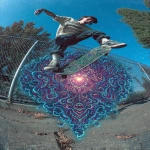Explore the Best AI Image Gallery

Beyond the Screen: How 5G is Redefining Creative Expression
The fifth generation of wireless technology, 5G, is more than just faster internet speeds. Its a seismic shift poised to revolutionize numerous sectors, including the creative industry. With its ultra-low latency and massive bandwidth capabilities, 5G unlocks unprecedented possibilities for artists, designers, and innovators to push boundaries, explore new mediums, and redefine how we experience creativity.
A Canvas of Immersive Experiences
One of the most profound impacts of 5G is its ability to power immersive experiences. Augmented reality (AR) and virtual reality (VR) applications, once hindered by lag and bandwidth limitations, can now flourish in a 5G-enabled world. Imagine artists sculpting digital masterpieces in real-time, viewers stepping inside vibrant virtual galleries, or musicians performing live concerts that transcend geographical boundaries. 5G paves the way for interactive storytelling, collaborative art projects, and truly engaging creative experiences.
Boosting Creative Workflow
Beyond immersive experiences, 5G significantly enhances the creative workflow itself. Real-time collaboration becomes seamless as artists from different locations can work together on projects with minimal delay. High-resolution video streaming and file transfers allow for faster sharing of ideas and assets, streamlining the creative process. Moreover, 5G-powered cloud computing platforms enable access to powerful processing capabilities, enabling creatives to work on complex simulations, renderings, and animations with increased efficiency.
New Frontiers in Artistic Expression
5G technology opens up exciting new frontiers for artistic expression. The potential for real-time interaction between humans and machines, facilitated by 5Gs low latency, could lead to innovative forms of art that blur the lines between creator and audience. Imagine interactive installations where viewers movements influence the artwork or AI-powered tools that assist artists in exploring unconventional creative concepts.
Navigating Ethical Considerations
While 5G presents immense opportunities, it also raises important ethical considerations. Data privacy and security are paramount concerns as 5G networks collect vast amounts of user data. Ensuring responsible use of AI-powered tools in creative processes is crucial to prevent biases and promote equitable access to technology. Furthermore, the increasing reliance on digital platforms raises questions about the ownership and control of creative works in a decentralized environment.
Looking Ahead: A Future of Collaborative Creativity
The future of creativity in a 5G-powered world is one of unprecedented collaboration and innovation. Artists, designers, engineers, and researchers will work together to develop groundbreaking applications that transcend traditional boundaries. From interactive installations to personalized creative experiences, 5G will empower individuals to express themselves in new and exciting ways, shaping a future where creativity knows no limits.








](https://images.ai-img.art/thumbnails/150/1ce1e6bd70605ae20fb18eb21544092347b1baebb547304b9002eb707483f172.webp)







](https://images.ai-img.art/thumbnails/150/1f5b798b3922304bf6c37ce90b7a9290370c44a8bcfbfb0180b93faa4b02f73a.webp)







](https://images.ai-img.art/thumbnails/150/c9437d9698a6c6c26564883d095b411feaeda2095b19e025e8c1668085441c5c.webp)









](https://images.ai-img.art/thumbnails/150/461af9b1ecfbca79f228584c0f3751118c0f696486cadcccf30ab2600b74bc0b.webp)














